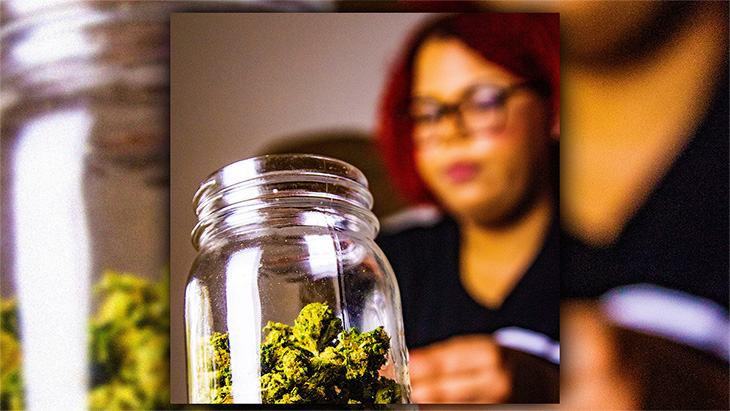On a scorching summer day in Phoenix, Emily had just about reached her breaking point. Her migraines had been relentless, and after months of trial-and-error with prescription medications, she was ready for something different. Her cousin mentioned medical marijuana, but Emily had no idea how the process worked. She assumed it would be long and complicated. One quick search changed everything. She discovered that the easiest way to get a medical card in Arizona was online, and in just a few days, Emily had her card and was finally on the path to finding relief.
Like Emily, many people are curious about how to obtain an Arizona medical marijuana card. If you’re interested in a natural solution for health, there’s good news: getting your medical card in Arizona isn’t as complicated as you might think. In fact, it’s easier than ever, and it could be the key to a more balanced, natural approach to your well-being.
Why Consider Medical Marijuana?
You might wonder why someone would opt for medical marijuana over traditional medicine. Simply put, medical marijuana offers relief with fewer side effects. Many individuals dealing with chronic pain, anxiety, or conditions like PTSD have turned to medical cannabis because it can address their symptoms without the risks that often come with prescription drugs.
In Arizona, chronic pain is the most common condition among medical marijuana users, with over 70% of cardholders reporting its use for this purpose. What’s more, many of these patients have reduced or completely stopped their reliance on opioid medications after incorporating cannabis into their health routine. It’s not just about pain management, though—many also use it to ease anxiety, sleep disorders, and nausea.
The Easiest Way to Get a Medical Card in Arizona
Applying for an Arizona medical marijuana card is now a streamlined process, and you can do it from the comfort of your own home. In the past, you had to visit a doctor in person, but these days, the easiest way to get a medical card in Arizona is online. Here’s how it works:
First, you schedule a quick consultation with a licensed physician who will review your medical history. If you qualify under the state’s list of conditions, the doctor will approve you for medical marijuana. Conditions like chronic pain, migraines, cancer, and PTSD are just a few examples of what might qualify you.
Once you’re approved, you submit an online application through the Arizona Department of Health Services (ADHS). You’ll need to upload a few documents, such as proof of residency and a valid ID. After that, your application is processed quickly, and you’ll often receive approval within just a few days. You can even print a temporary card while waiting for your official card to arrive in the mail.
Same-Day Relief
One of the best aspects of Arizona’s medical marijuana program is that it’s fast. You can apply and receive approval within the same day in many cases. This means you could be holding an Arizona medical marijuana card and accessing dispensaries within hours. If you’re in pain or dealing with another serious condition, that quick turnaround can make a huge difference.
Another interesting stat: over 90% of applicants are approved for a medical card in Arizona. Many people don’t realize they qualify for medical marijuana until they begin the application process. Conditions like anxiety, nausea, and even certain types of arthritis fall under the qualifying criteria.
The Benefits of Natural Medicine
Prescription medications can come with an array of side effects. Some leave you drowsy, while others can cause everything from nausea to dependency issues. Medical marijuana, on the other hand, is a natural alternative that has helped many people avoid those pitfalls. With an Arizona medical marijuana card, you can legally access a variety of cannabis products specifically formulated to address different conditions.
For example, if chronic pain is your main concern, you can find strains or products designed to target inflammation and discomfort. For those dealing with anxiety, there are strains that are calming and can help ease tension without making you feel overly sedated.
It’s important to remember that with medical marijuana, it’s all about finding the right balance. Everyone’s body reacts differently, so many patients go through a period of trial and error to discover the products that work best for them. But for most people, the relief they experience far outweighs the mild side effects they may encounter.
Little-Known Facts About Arizona’s Medical Marijuana Program
While most people know that Arizona allows medical marijuana, there are some interesting details that often fly under the radar. Did you know that Arizona patients are allowed to possess up to 2.5 ounces of cannabis at a time? This is one of the more generous possession limits in the country.
And for those who live in more rural parts of the state, you can legally grow your own marijuana plants if you live more than 25 miles from a dispensary. Patients are allowed to cultivate up to 12 plants at home, giving them access to a continuous supply of their natural medicine.
Another surprising tidbit: nearly 60% of Arizona’s medical marijuana cardholders are over the age of 40. This goes to show that medical cannabis is far from being a young person’s trend—adults of all ages are finding relief through this natural health option.
Wrapping It Up
If you’ve been thinking about exploring natural health solutions, medical marijuana could be a great option to consider. The process to get an Arizona medical marijuana card has never been easier. By applying online, you can get your card quickly, sometimes within the same day, and start accessing the natural relief you’ve been seeking.
With so many people in Arizona turning to medical cannabis for everything from chronic pain to anxiety, it’s clear that the state’s program is designed to make it as easy as possible to get the care you need. So, what’s stopping you from giving it a try?
Medical Disclaimer:
The information provided in these blog posts is intended for general informational and educational purposes only. It is not a substitute for professional medical advice, diagnosis, or treatment. Always seek the advice of your physician or other qualified healthcare provider with any questions you may have regarding a medical condition. The use of any information provided in these blog posts is solely at your own risk. The authors and the website do not recommend or endorse any specific products, treatments, or procedures mentioned. Reliance on any information in these blog posts is solely at your own discretion.






